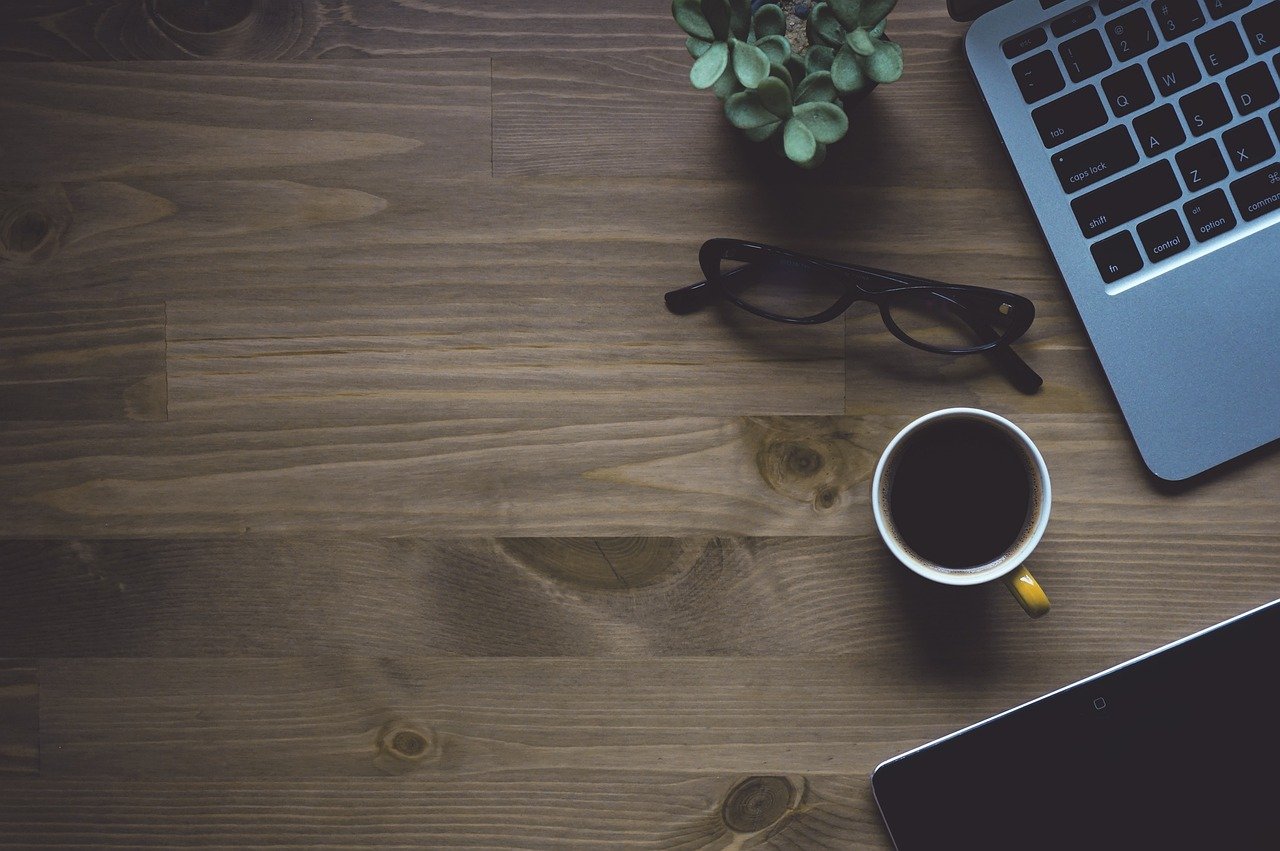What Should I Consider When Buying A Laptop For The First Time?
So, you’ve finally decided to take the plunge and buy your very first laptop! Congratulations! But with so many options out there, it can be overwhelming to know where to start. Don’t worry, though, because in this article, we’ll cover everything you need to consider when buying a laptop for the first time. From determining your budget to understanding the different specifications and features, we’ve got you covered. By the end of this article, you’ll be armed with all the knowledge you need to make an informed decision and find the perfect laptop that suits your needs and preferences. Let’s get started!

This image is property of pixabay.com.
Budget
Set a budget
When purchasing a laptop for the first time, it is important to establish a budget. Determine the maximum amount you are willing to spend and stick to it. Setting a budget will help narrow down your options and prevent you from overspending. Remember to consider not only the upfront cost of the laptop but also any additional accessories or software you may need.
Consider the long-term value
While it can be tempting to opt for the cheapest laptop available, it is crucial to consider the long-term value of your investment. A higher-quality laptop may cost more initially but can save you money in the long run by offering better performance and lasting durability. Take into account factors such as the laptop’s processing power, storage capacity, and build quality to determine its overall value.
Research pricing options
Before making a purchase, take the time to research pricing options. Compare prices from different retailers and online marketplaces to ensure you are getting the best deal possible. Keep an eye out for seasonal sales and promotions, as many retailers offer discounts on laptops during certain times of the year. However, be wary of deals that appear too good to be true, as they may indicate poor quality or outdated models.
Look for discounts or sales
Another way to stick within your budget is to look for discounts or sales. Many retailers offer student discounts or special pricing for certain professions such as educators or military personnel. Additionally, keep an eye out for refurbished laptops, which are often sold at a lower price but still offer great performance. Just make sure to purchase from a reputable seller and check the warranty and return policy.
Purpose
Determine your needs
The first step in choosing a laptop is to determine your needs. Consider how you will be using the laptop – will it be mainly for web browsing, word processing, or gaming? Understanding your needs will help you prioritize certain features and specifications.
Consider your usage
In addition to your needs, consider your usage patterns. Will you be using the laptop primarily at home or on the go? This will help determine factors such as battery life and portability. If you plan on traveling frequently or need to work in different locations, a lightweight and portable laptop may be more suitable.
Identify specific requirements
Once you have determined your needs and usage patterns, identify any specific requirements you may have. For example, if you work in a creative field, you may require a laptop with a high-quality display and powerful graphics capabilities. If you are a student, you may prioritize a laptop with a comfortable keyboard and long battery life for hours of note-taking.
Choose the right operating system
When selecting a laptop, consider which operating system (OS) is the best fit for you. The three most common options are Windows, macOS, and ChromeOS. Each has its own strengths and weaknesses, so it is important to research and compare them to determine which one aligns with your needs and preferences. Consider factors such as user interface, software compatibility, and available applications.
Size
Consider portability
The size of a laptop plays a significant role in its portability. If you plan on carrying your laptop with you frequently, you may want to opt for a smaller and lighter model. Ultrabooks and thin laptops are known for their portability, making them a popular choice for students or professionals who need to work on the go. However, if you prioritize a larger screen and enhanced viewing experience, a larger laptop may be more suitable for you.
Think about screen size
When considering the size of a laptop, take into account the screen size. A larger screen can improve the visual experience, making it more enjoyable for activities such as watching movies or editing photos. However, a larger screen also means a larger and potentially heavier laptop. On the other hand, a smaller screen size can make the laptop more compact and lightweight, but it may sacrifice some visual real estate.
Weigh the pros and cons
Deciding on the size of your laptop ultimately comes down to weighing the pros and cons. Think about your priorities and what matters most to you – portability or screen size. Consider your usage patterns and whether you value a lightweight laptop that can easily fit into a backpack or a larger laptop that offers a more immersive display. It may be helpful to visit a store and physically handle laptops of different sizes to get a better idea of what suits you best.
Processor
Choose the right type of processor
The processor is the brain of your laptop, and choosing the right type is crucial for optimal performance. The two main processor options are Intel and AMD. Both have their own advantages and are suitable for different needs. Intel processors are known for their strong single-core performance, making them ideal for tasks that require quick responsiveness, such as web browsing or word processing. AMD processors, on the other hand, excel in multi-core performance, making them a better choice for tasks that involve multitasking or intensive applications such as video editing or gaming.
Consider the number of cores
In addition to the type of processor, consider the number of cores. The more cores a processor has, the better it can handle multitasking and processor-intensive tasks. For basic usage, a dual-core processor may suffice, but for more demanding tasks such as video editing or gaming, a quad-core or higher processor is recommended.
Look for sufficient cache size
Cache size is another important factor to consider when choosing a processor. The cache is a small amount of memory located on the processor chip that stores frequently accessed data, improving the processor’s efficiency. A larger cache size can lead to faster processing and improved overall performance. When comparing processors, look for a cache size that meets your needs based on the tasks you will be performing on your laptop.
Consider thermal design power
Thermal design power (TDP) refers to the amount of heat a processor generates and the cooling system required to dissipate it. Lower TDP processors are typically more energy-efficient and generate less heat, resulting in longer battery life and cooler operating temperatures. Higher TDP processors, on the other hand, offer greater performance but may require more robust cooling solutions. Consider your usage patterns and how much heat generation you can tolerate before making a decision on the processor’s TDP.

This image is property of pixabay.com.
RAM
Consider the memory capacity
Random Access Memory (RAM) is responsible for temporarily storing data that the processor needs to access quickly. The amount of RAM your laptop has can significantly impact its performance. When choosing a laptop, consider the memory capacity you require based on your usage patterns. For basic tasks such as web browsing and word processing, 8GB of RAM should be sufficient. However, for more demanding tasks such as video editing or gaming, consider opting for 16GB or higher for smoother multitasking and better performance.
Look for high speed and upgrade options
RAM speed is another crucial factor to consider. Higher RAM speeds result in faster data transfer and improved overall performance. When comparing laptops, look for models that offer high-speed RAM modules. Additionally, consider whether the laptop allows for future RAM upgrades. Being able to upgrade your laptop’s RAM in the future can be beneficial if your needs change or if you want to extend the lifespan of your device.
Determine the type of RAM
Different types of RAM are available, such as DDR3 and DDR4. When selecting a laptop, check which type of RAM is supported. DDR4 offers faster speeds and improved power efficiency compared to its predecessor, DDR3. However, DDR4 RAM may come at a higher cost. Consider your budget and performance requirements when deciding on the type of RAM that best suits your needs.
Consider future-proofing
Technology advances rapidly, so it is important to consider future-proofing when it comes to RAM. While 8GB of RAM might be sufficient for your current needs, it is worth considering whether investing in a laptop with a higher RAM capacity would better serve you in the long run. This can prevent the need for frequent upgrades and ensure your laptop remains capable of running future software and applications smoothly.
Storage
Consider the type of storage
When it comes to storage, laptops typically offer two main options: hard disk drives (HDDs) and solid-state drives (SSDs). HDDs are more affordable and generally offer larger storage capacities, making them suitable for storing large files such as videos or photos. However, they are slower and less durable than SSDs. SSDs, on the other hand, are faster, more reliable, and often come in smaller form factors. Consider your storage needs, budget, and performance requirements when deciding between an HDD and SSD.
Choose the right storage capacity
In addition to the type of storage, consider the storage capacity you require. The appropriate storage capacity depends on the types of files you will be storing and how many you anticipate having. If you primarily work with documents, browse the internet, and stream media, a smaller capacity, such as 256GB or 512GB, may be sufficient. However, if you work with large media files or plan to store a large number of games, you may want to consider a larger capacity, such as 1TB or higher.
Think about future expansion
When choosing the storage capacity, it is also worth thinking about future expansion options. Some laptops allow for additional storage upgrades, either through an extra drive bay or by replacing the existing storage drive. If you anticipate needing more storage in the future, consider opting for a laptop that offers expandable storage options.

This image is property of pixabay.com.
Graphics
Consider integrated vs dedicated graphics
Laptops offer two types of graphics solutions: integrated and dedicated. Integrated graphics are built into the processor and share system memory, making them suitable for basic tasks such as web browsing and word processing. Dedicated graphics, on the other hand, have their own dedicated video memory and offer better performance, making them essential for tasks that involve graphics-intensive applications, such as gaming or professional video editing.
Determine your graphics needs
Consider the type of tasks you will be performing on your laptop to determine your graphics needs. If you primarily use your laptop for basic tasks or do not engage in graphics-intensive activities, integrated graphics may be sufficient. However, if you plan to play modern video games or work with 3D modeling software, dedicated graphics are recommended for smoother performance and better visual quality.
Consider gaming or professional requirements
If you are a gamer or a professional in a field such as graphic design or video editing, consider the specific requirements of the games or software you use. Some applications may have minimum graphics card requirements or recommend specific models for optimal performance. Research system requirements and compare them to the specifications of the laptops you are considering to ensure compatibility and smooth operation.
Look for compatible graphics software
If you have specific graphics software that you rely on, ensure that it is compatible with the graphics solution offered by the laptop. Certain software may require specific drivers or have compatibility issues with certain graphics cards. Check the software manufacturer’s recommendations and ensure that the laptop you choose supports the necessary graphics software.
Battery Life
Consider your usage and mobility
Battery life is an essential consideration, especially if you plan on using your laptop on the go or in situations where a power outlet may not be readily available. Determine your average usage patterns and consider how long you need the laptop to last on a single charge. If you frequently travel or work in locations without easy access to power, prioritize laptops with longer battery life.
Look for a higher battery capacity
When comparing laptops, check the battery capacity stated in watt-hours (Wh). Higher battery capacity generally translates to longer battery life. However, keep in mind that battery life can vary based on factors such as the laptop’s display brightness, processor intensity, and usage patterns. Look for laptops with larger battery capacities that align with your usage requirements for extended periods of productivity without needing to recharge.
Consider fast charging options
If you are constantly on the move and need to recharge your laptop quickly, consider laptops with fast charging capabilities. Some laptops offer features like fast charging, which can provide several hours’ worth of battery life within a short amount of charging time. This can be particularly useful when you are in a rush or have limited access to power outlets.
Read reviews and battery tests
To gain a realistic understanding of a laptop’s battery life, it is important to read reviews and look for battery tests conducted by reputable sources. These reviews often provide insights into real-world usage scenarios and how the laptop performs in terms of battery efficiency. Consider the battery life experiences shared by other users and take note of any common complaints or compliments regarding battery performance.

Connectivity
Consider the number of ports
When it comes to connectivity, a laptop’s number of ports can greatly impact its usability. Consider the number and type of ports you require for your peripherals and devices. Common ports to look for include USB-A, USB-C, HDMI, and headphone jacks. If you frequently use external storage devices, connect to external monitors, or require other peripherals, ensure that the laptop offers enough ports to accommodate your needs.
Look for USB-C or Thunderbolt support
USB-C and Thunderbolt are versatile connectivity options that offer high-speed data transfer and the ability to connect to multiple devices through a single port. USB-C ports are becoming increasingly common in laptops and are ideal for charging, data transfer, and connecting to external displays or other accessories. Thunderbolt ports provide even faster data transfer speeds and are suitable for professionals who require high-performance peripherals.
Determine your connectivity needs
Evaluate your specific connectivity needs based on your usage patterns and devices. For example, if you frequently transfer large files between your laptop and external storage devices, prioritize laptops with fast USB ports or Thunderbolt support. Similarly, if you rely on HDMI connectivity to connect your laptop to external displays or projectors, ensure that the laptop has a dedicated HDMI port or the appropriate adapter.
Consider future compatibility
When choosing a laptop, it is beneficial to consider future compatibility. Technology rapidly evolves, and you may find yourself needing to connect to devices or peripherals that are not yet commonplace. Choose a laptop that offers a good balance of current and future connectivity options to ensure that you can seamlessly connect to emerging technologies without needing to invest in additional adapters or dongles.
Brand and Support
Research different laptop brands
When purchasing a laptop, it is important to research different laptop brands to identify reputable and reliable options. Well-established brands tend to have a track record of producing high-quality laptops with good customer support. Take the time to read about the strengths and weaknesses of each brand, as well as their reputation for durability and customer satisfaction.
Consider customer reviews and ratings
Customer reviews and ratings can provide valuable insights into the performance and reliability of a laptop. Look for laptops with positive customer reviews and high ratings, as this can indicate a higher level of customer satisfaction and overall quality. Pay attention to common complaints or issues mentioned by reviewers to gain a more complete understanding of the laptop’s potential drawbacks.
Look for warranty and support options
A laptop is a significant investment, so it is important to consider warranty and support options. Check the warranty period offered by the manufacturer and any additional services or support they provide. Some manufacturers offer extended warranties or accidental damage protection plans, which can provide extra peace of mind. Additionally, consider the availability and quality of customer support for the brand you are considering.
Consider after-sales services
After-sales services can often make or break the overall laptop ownership experience. Look for manufacturers that offer comprehensive after-sales support, including easy access to driver updates, troubleshooting guides, and customer forums. Consider the availability of authorized service centers in your area and the overall reliability of their repair and maintenance services. Investing in a laptop from a brand with good after-sales services can ensure that you have assistance and support when you encounter issues with your device.
In conclusion, buying a laptop for the first time requires careful consideration of various factors. Setting a budget, determining the purpose, choosing the right size, processor, RAM, storage, graphics, battery life, connectivity, and considering the brand and support are all crucial steps in making an informed decision. By applying the information and tips provided in this article, you can confidently select a laptop that meets your needs, preferences, and budget while providing a reliable and enjoyable computing experience.







